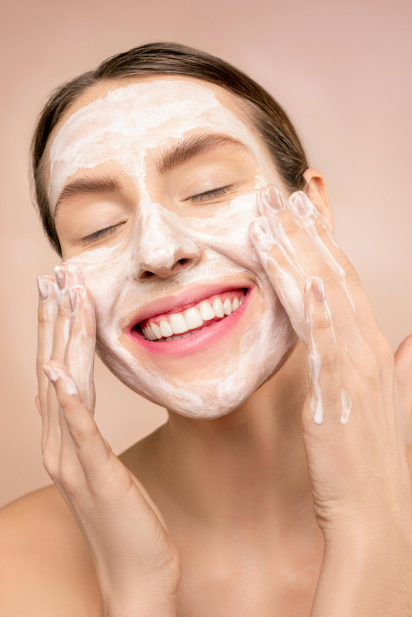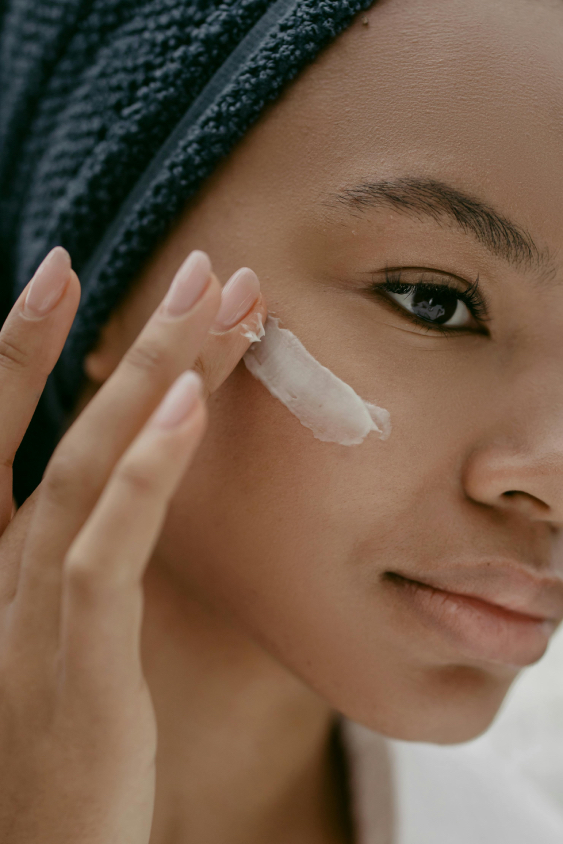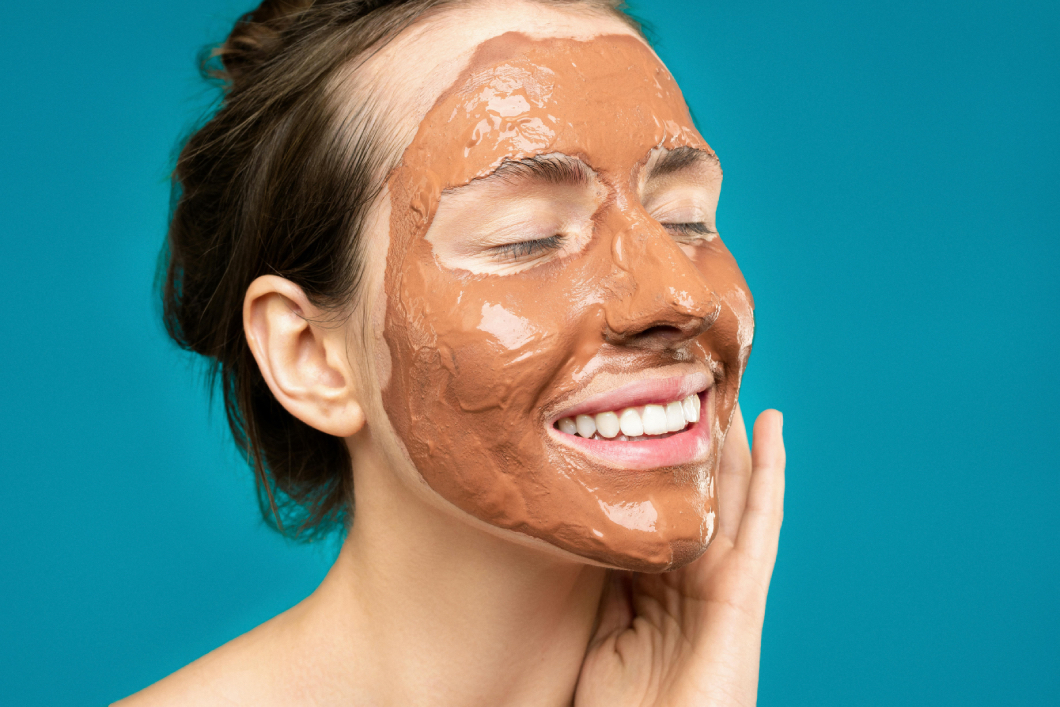Maintaining radiant, healthy skin is a common goal for many people, but with the plethora of skincare products and advice available, it can be challenging to determine the best routine for your skin type. This comprehensive guide aims to simplify the process by offering practical tips and expert advice to help you achieve and maintain glowing skin.
Understanding Your Skin Type
Before diving into skincare routines and products, it’s essential to understand your skin type. The primary skin types are:
- Normal: Balanced, not too oily or dry, few imperfections.
- Oily: Shiny, greasy, prone to acne and enlarged pores.
- Dry: Flaky, rough, and can feel tight or itchy.
- Combination: A mix of oily and dry areas, typically oily in the T-zone and dry elsewhere.
- Sensitive: Easily irritated, prone to redness and reactions.
Knowing your skin type helps in selecting the right products and treatments, ensuring that your skincare routine is effective and safe.

Essential Skincare Steps
A basic skincare routine should include the following steps:
1. Cleansing
Cleansing removes dirt, oil, and impurities from the skin. Choose a gentle cleanser suitable for your skin type. For example, those with oily skin might benefit from a foaming cleanser, while those with dry skin should opt for a hydrating, non-foaming cleanser.
2. Exfoliating
Exfoliation helps to remove dead skin cells, promoting cell turnover and a smoother complexion. It should be done 1-2 times per week, depending on your skin’s sensitivity. There are two main types of exfoliants:
- Physical Exfoliants: Scrubs with small particles that physically remove dead skin cells.
- Chemical Exfoliants: Acids like alpha hydroxy acids (AHAs) and beta hydroxy acids (BHAs) that dissolve dead skin cells.
3. Toning
Toners help to balance the skin’s pH, remove any remaining impurities, and prepare the skin for the next steps in your routine. Look for alcohol-free toners with hydrating ingredients.
4. Moisturising
Moisturising is crucial for all skin types. It helps to hydrate the skin, maintain its barrier, and lock in moisture. Choose a moisturiser suitable for your skin type:
- Oily Skin: Lightweight, non-comedogenic moisturisers.
- Dry Skin: Rich, hydrating creams.
- Normal/Combination Skin: Balanced, non-greasy formulas.
5. Sun Protection
Sunscreen is vital for protecting the skin from harmful UV rays, which can cause premature ageing and increase the risk of skin cancer. Use a broad-spectrum sunscreen with at least SPF 30 daily, regardless of the weather.

Additional Skincare Tips
Hydration and Diet
Drinking plenty of water and maintaining a healthy diet rich in fruits, vegetables, and healthy fats can significantly impact your skin’s health. Foods high in antioxidants, such as berries, and omega-3 fatty acids, like salmon, are particularly beneficial.
Sleep and Stress Management
Adequate sleep and effective stress management are crucial for maintaining healthy skin. Aim for 7-9 hours of sleep per night and practise stress-reducing activities like yoga, meditation, or regular exercise.
Professional Advice
If you’re unsure about your skin type or have persistent skin issues, consulting a dermatologist can provide valuable insights and tailored advice. For instance, a dermatologist in London can offer personalised recommendations based on your skin’s specific needs and the local climate.
Addressing Common Skin Concerns
Acne
Acne is a common concern for many people. To manage acne, consider incorporating products with salicylic acid, benzoyl peroxide, or retinoids into your routine. Avoid picking at pimples to prevent scarring and further inflammation.
Hyperpigmentation
Hyperpigmentation can result from sun exposure, acne, or hormonal changes. Ingredients like vitamin C, niacinamide, and retinoids can help to fade dark spots and even out skin tone.
Ageing
To combat signs of ageing, such as fine lines and wrinkles, consider incorporating anti-ageing products into your routine. Retinoids, peptides, and hyaluronic acid are effective ingredients that promote collagen production and improve skin elasticity.

Building a Skincare Routine
Creating a skincare routine tailored to your skin type and concerns is essential for achieving radiant, healthy skin. Here’s a simple guide to help you build your routine:
Morning Routine
- Cleanser: Start with a gentle cleanser to remove any overnight impurities.
- Toner: Apply toner to balance your skin’s pH.
- Serum: Use a serum with antioxidants like vitamin C to protect and brighten your skin.
- Moisturiser: Hydrate your skin with a suitable moisturiser.
- Sunscreen: Apply sunscreen with at least SPF 30 to protect your skin from UV damage.
Evening Routine
- Cleanser: Remove makeup and impurities with a gentle cleanser.
- Exfoliant: Use a chemical or physical exfoliant 1-2 times a week.
- Toner: Apply toner to prepare your skin for the next steps.
- Serum: Choose a serum that addresses your specific skin concerns, such as retinol for anti-ageing.
- Moisturiser: Apply a rich moisturiser to lock in hydration overnight.
Conclusion
Achieving radiant, healthy skin requires a consistent skincare routine, a balanced diet, adequate hydration, and proper sun protection. By understanding your skin type and addressing specific concerns with targeted products, you can enhance your skin’s health and appearance. Remember, consulting a professional, like a dermatologist in London, can provide personalised advice and treatments to help you achieve your skincare goals. Stay committed to your routine, and over time, you’ll see noticeable improvements in your skin’s radiance and overall health.
You may also enjoy reading about why holistic approach to aesthetics.




